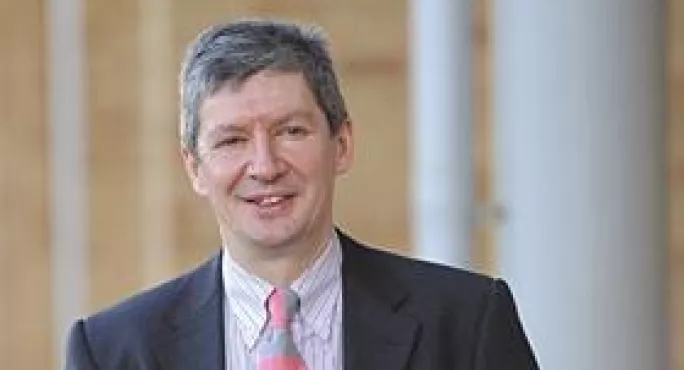Interview: Bill Maxwell

In what way did East Renfrewshire’s situation fulfil the `exceptional circumstances’ outlined by the Curriculum for Excellence management board as justification for delaying sitting the new National exams? East Renfrewshire is in a unique position because of its lack of reliance on Standard grade. You need to understand their decision - to pick up NQ 4 and 5 one year later than everyone else - in that context. How can you deny other schools the same option? The exceptional circumstances are still available, although we’d be looking to support schools that feel they’re not ready to implement NQs 4 and 5 on schedule, wherever possible. We’re talking to local authorities about the arrangements in their own areas and so far none of the other 31 local authorities has come to us with a proposal that any school or any subject in any school should delay. I’m disappointed that East Renfrewshire is not following the same timeline as everyone else, because I think it carries an unnecessary risk of giving the impression that there is something to be frightened about, or concerned about, in terms of moving to the new National qualifications. Do you accept that your response to East Renfrewshire’s actions has injected uncertainty at best, and panic, at worst, into the system? It’s not my role in Education Scotland to give anyone permission or to deny their aspects of implementation of Curriculum for Excellence. Local authorities have all bought into its principles. I have sought reassurances from East Renfrewshire that they continue to be fully committed to the roll-out of the whole programme and they have reassured us that they are. Fundamentally it is up to local authorities to decide what happens in their own areas, and I have no veto over that, nor should I. Yet you were clear in your recent letter to directors of education about how you saw the implementation of the senior phase of Curriculum for Education. The purpose of my letter to the 32 directors was to reaffirm one of the basic design principles of CfE which was clear in Building the Curriculum 3, issued in 2008 - the importance of having a coherent, broad general education for the first three years of secondary leading to a challenging senior phase in S4-6. There is a whole variety of ways in which individual schools and local authorities will design that broad general education and the senior phase and I’m not seeking to impose one particular model on them. In fact, there’s a sense in which discussions about 2+2+2 models can be quite misleading, especially if they seek to imply that you can’t have options and choices prior to S3. You absolutely can - in fact, you should have variability and flexibility in the broad general education phase. So a broad general education can still be delivered to S3 pupils who have chosen eight or nine subjects at the end of S2? A broad general education certainly can allow for young people to specialise and make choices as they progress through the S1-3 phases, particularly as they achieve the third-level outcomes across the broad general education. Indeed, we would expect young people thereafter to be specialising in a variety of ways as they move towards fourth-level outcomes. You can have specialisation at the end of S2. What’s important, I think, is that at the end of S3 there’s a real reappraisal of everything a young person has achieved up to that point and that will be reflected in the S3 profile, which all young people will have. And that’s the point where they should really confirm the choices they want to make for qualifications from S4 onwards. There may be a high level of continuity between those choices and areas in which they have specialised in S3, but equally there may be differences. Is the 2+2+2 structure fatally flawed in your opinion? I think people use that terminology loosely and in different ways. If it’s an unthinking retro-fitting of what the schools were doing prior to the move to CfE, onto the new approach, then yes, it is fatally flawed. You were appointed transitional chief executive last year and confirmed as chief executive last month. Should the job not have been advertised publicly, as some critics have suggested? That’s a question for the civil service really, but there is a standard practice in job-matching, in making such appointments, which is undertaken by civil servants as they bring together public bodies. It’s been used often and in many contexts and they applied it in the normal way in this case. Do you get a bonus? No. There is a pay freeze for senior civil servants and has been for a couple of years. There was no change to my salary as a result of taking on this organisation - pound;110,000. How are you enjoying the biggest job in Scottish education? Hugely - the potential of the organisation is immense, so it’s really a great privilege to be in at the early stages to develop the full impact of what I think Education Scotland can achieve. How do you switch off from work? I’m an enthusiastic mountaineer when I manage to make the time to get away to the hills. PERSONAL PROFILE Born: Edinburgh, 1957 Education: Dundee High; psychology degree, University of Oxford; PhD in child psychology, University of Edinburgh; Masters in educational psychology, University of Glasgow Career: Joined HMI in 1994; chief inspector from 2002; head of education and analytical services, Scottish government, 2006-08; chief inspector of education and training, Wales, 2008-10; senior chief inspector, HMIE, 2010-11; chief executive, Education Scotland, 2012 to present day. Photo credit: Darren Britton
Keep reading for just £1 per month
You've reached your limit of free articles this month. Subscribe for £1 per month for three months and get:
- Unlimited access to all Tes magazine content
- Exclusive subscriber-only stories
- Award-winning email newsletters